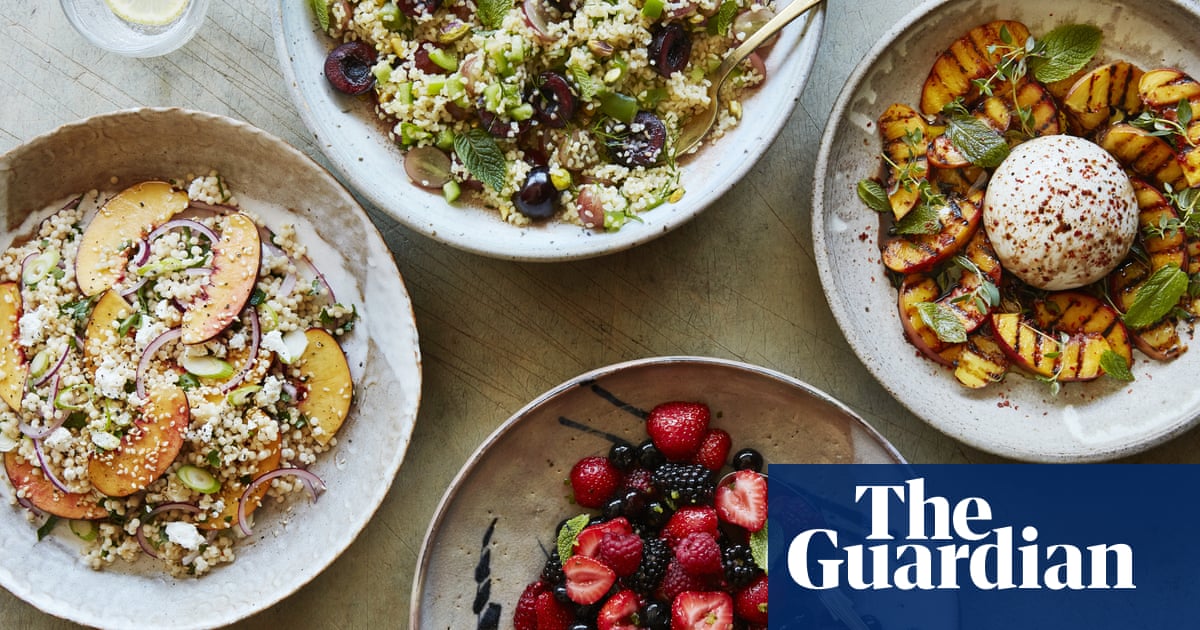
oronavirus was an earthquake for British food and drink producers. With restaurants, pubs and office canteens shut, exports disrupted and Britons hoarding for lockdown, mismatches in supply chains were created, along with temporary shortages and huge gluts of surplus produce. All this meant farmers, fishermen and processors needed to find new retail opportunities.
The aftershocks are still reverberating. Lockdown is easing, but British food is far from back to normal. From supermarkets selling seafood once destined for Michelin-starred restaurants to artisan cheesemakers offloading stock on waste-food apps, British producers are desperate for your support. For shoppers, there are bargains to be had. But which products are affected by surpluses? And what exciting things can you do with these ingredients?
Cockles and clams
Usually sold to top restaurants, the Dorset Shellfish Company’s cockles and clams (£10.99/£13.99 a kilo, respectively), which are approved by the Marine Stewardship Council, are available at 150 Waitrose fish counters. The supermarket says this offers a “lifeline” to the Poole harbour fishermen involved.
Chilli-laden spaghetti alle vongole is an obvious dish for such clams, but Sai Deethwa, the owner of the Birmingham street food business Buddha Belly, recommends “clams stir-fried with roasted Thai chilli paste – AKA nam prik pao – tons of Thai basil and a little oyster sauce and water to create a liquor. It’s incredible.”
At the Dining Room in Abersoch, Gwynedd, the chef-owner Si Toft loves cockles with fattier lamb cuts, such as rump: “Roast it in the pan then, while the lamb is resting, chuck the cockles through the rendered fat for two minutes with a little butter and cider, reduce it all and bang it over the lamb. It’s stunning.”
Potatoes
Chip-shop closures left at least 95,000 tonnes of excess spuds in circulation. Versatile varieties such as Markies, Agria and Eurostar – usually described as chipping potatoes because they are bigger and uglier than their retail cousins – are circulating in Morrisons’ Wonky range and at other supermarkets. Such spuds are good for sautéing and making wedges – or what Toft describes as “the absolute king of family teas: dauphinoise layered with onions and bacon”. And the secret to perfect mash? Butter. And lots of it.
Real ale
The abrupt halt to cask ale sales earlier in the year will, according to the British Hop Association, leave a 28% surplus of English hops such as Goldings and Jester sitting in breweries and warehouses – a surplus that could rise to 45% in the next 12 months. That will make it difficult for farmers to sell this year’s crop or secure contracts with hop merchants for 2021 and 2022.
“If you don’t have contracts, you don’t grow. If you stop, you don’t go back,” says Ali Capper, a hop grower at Stocks Farm in Worcestershire. “If this surplus halves prices, am I going to grow next year? No. We risk a significant proportion of hop growers leaving the industry.”
The message is simple: drink more real ale made with English hops. Work it into your baking and cooking, too. “We use a half-beer base in cheese sauces,” says Sam Grainger, the executive chef at Belzan in Liverpool. “That yeasty, hoppy flavour really pushes it up.”
Eggs
Ordinarily, Britain eats medium and large brown eggs. Smaller and white eggs go into manufacturing, catering or fast food. But to cope with increased demand, Tesco is stocking surplus white eggs and Waitrose mixed-size boxes of 12 for 20p less than the equivalent weight of uniform eggs.
“I use undersized eggs in salads,” says Toft. “Bloody Mary pickled eggs are amazing. Use equal parts spirit vinegar and passata, a splash of sherry, celery seeds, horseradish, a spoonful of sugar, salt, pepper, juniper and bay. Bring it all to the boil before letting it cool, then pour that over hard-boiled eggs in a sterilised jar.” Nina Matsunaga, the chef at the Black Bull in Sedbergh, Cumbria, also favours preservation, brining unshelled raw eggs in a 20% salt solution for five weeks before cooking them: “Salted Asian eggs are fantastic in ramen.”
Lamb
With Easter and Eid celebrations quieter this year, and older shoppers who prefer it often isolating at home, lamb had a tough lockdown. Restaurants and export markets are opening, gradually, but there is a danger, particularly in September as new-season lamb comes through, of problems with so-called carcass balance – whereby lamb mince sells well, but roasting joints and other cuts are neglected. Chefs find that baffling. “Cider-braised lamb breast is amazing” – cover in foil and cook for three to four hours at 180C (160C fan)/350F/gas 4 – “as are lamb shortribs,” says Toft.
Deethwa is a big fan of lamb massaman curry: “Because it’s slightly sweet, lamb lends itself to the tamarind’s sourness – and you can slow-cook shank, neck and shoulder because it’s nice and fatty.”
Blue cheese
The Cornish Cheese Co is selling frozen 5kg bags of blue cheese – which is fine for cooking – for £25 through the food-waste app Too Good to Go, while Aldi, after buying four tonnes of surplus stock, has launched 475g mixed boxes of small-producer British cheese for £1.49. That illustrates how traumatic 2020 has been for some artisan cheese producers.
At Belzan, Grainger is amazed more people are not cooking with blue cheese: “We do a delicious wild mushroom and baked eggs dish with it,” he says. “You can coat salads in blue cheese sauce blended with yoghurt – beetroot is great, as are roasted peaches baked with blue cheese and parma ham.”
Asparagus
If you are quick, you will catch the back end of asparagus season at Waitrose, which is stocking larger, smaller, fatter, thinner and curved asparagus that, historically, it would have rejected. Toft suggests gently barbecuing it: “Dressing-wise, go burnt lemon” – char half a lemon, then mix the juice with oil and salt – “or bacon-fat hollandaise. You wazz rendered bacon fat through hollandaise instead of butter. It’s amazing on asparagus.”
Wonky vegetables
In what it says is “a bid to make sure homegrown produce doesn’t go to waste”, Waitrose has relaxed its rules on the blemishes and bumps that would normally result in carrots and parsnips being sold to mass-catering outlets rather than gracing its aisles.
If you have an abundance of carrots, the Indian dessert halwa – 1kg of carrots to serve four(!), although it varies by recipe – is one way to deploy them. For those with less of a sweet tooth, Mayur Patel, the co-owner of the northern mini-chain Bundobust, recommends sambharo, “a kind of desi slaw, served on the side of every curry”. Temper mustard seeds, green chillies and a little asafoetida in oil. After this cools, add lemon juice and mix through shredded carrot. Let it marinade for a couple of hours before serving.
From Belzan’s carrot-top pesto (200g carrot tops blended with 50g Parmesan, 1 tbsp dijon mustard, juice of one lemon, eight brown anchovies, 100ml oil and seasoning) to Buddha Belly’s som tam green papaya salad, in which carrots add “sweet, crunchy balance”, this is a versatile vegetable. But faced with a bag of wonky carrots or parsnips, many of us will think soup – so how do you make those soups sing?
You need, suggests Elaine Mason, from the soup bar Union of Genius in Edinburgh, acid: “Lemon, lime, a touch of vinegar cooked off. Parsnips loves the tart sweetness apple adds. Roast them first if there’s time, but tinker with acid and spices like coriander seed, cumin and sumac.” And don’t forget garnishes: “Soy-roasted seeds on top add texture, salt and savour. Harissa-roasted chickpeas bring heat and crunch.”
Steak
Supermarkets sold hundreds of thousands of discounted steaks at the peak of lockdown. With restaurant recovery patchy and markets volatile, stay alert for more beefy bargains. Grainger recommends marinating cheaper steaks in “soy, fish sauce and palm sugar to get the caramelised crust you get from expensive cuts with better fat”.
Seafood
Cod, haddock, tuna and prawns – often tinned, often imported, often overfished – along with farmed salmon, make up 80% of the seafood eaten in Britain. If you want to expand your horizons, now is the time. The fishing industry is selling a greater variety of previously exported seafood either directly, through independent fishmongers (Google Seafish’s Sea for Yourself campaign) or in supermarkets, at newly affordable prices. For instance, Morrisons is selling half-price fresh king scallops (33p each), plaice (£3.50 a kilo) and dover sole (£10 a kilo).
Dire as such prices sound for fishermen, one major supplier, Ocean Fish, considers this moment an opportunity. (Its Cornish sardines are £5.99 a kilo at Waitrose.) “Supermarkets should play a role in backing British fish,” says a spokesperson, adding: “Selling greater volumes into supermarkets could even support the drop in market value for certain species.”
Grainger soaks sardine fillets in sherry vinegar before breadcrumbing and frying them. Toft also keeps it simple with dover sole: “Barbecue it. You get a higher temperature, char and that smoky thing going.” Rub the slashed skin with oil, lemon, rosemary and salt – flavoured salt if you have something suitable. “Flavoured salts will lift any white fish.”












